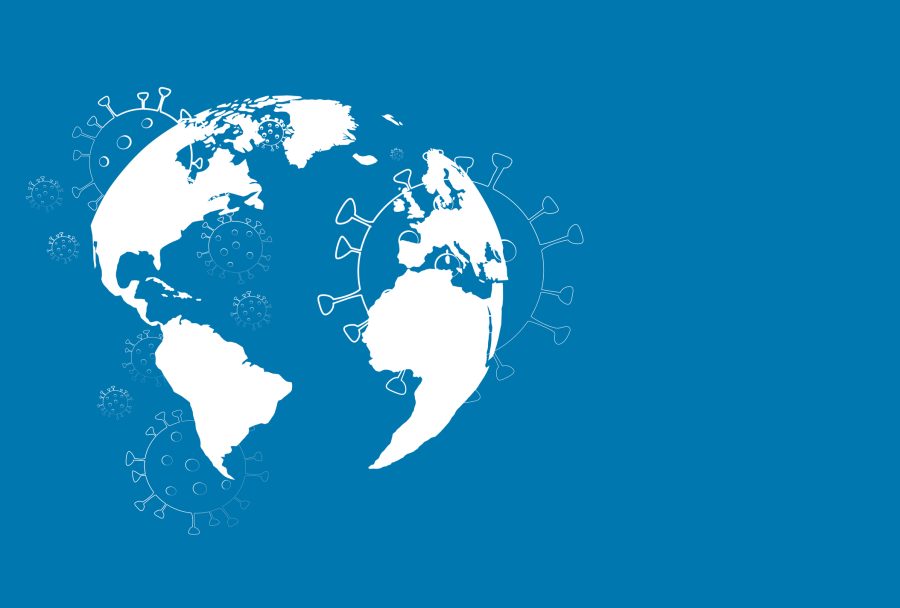Two Years On: Looking at Policy Responses Across the World

Two years after the UK went into lockdown, IPPO held a day-long series of sessions on March 24, 2022 to examine what lessons we must learn for future policymaking. The video of our panel discussion on the Global Picture is below, with further reflections from IPPO editor Sarah O’Meara.
Full list of speakers*
Key Takeaways
During this session, our speakers shared diverse perspectives on their experiences of how communities had handled the pandemic, and what they had learned as a result.
Dr Inaya Rakhmani, the director of the Asia Research Centre at Universitas Indonesia described how local communities filled in where the state couldn’t provide services.
As the lead researcher of an 11-country study on the role social sciences played in COVID-19 responses, she noted that there was an opportunity to make these initiatives more sustainable and mainstreamed on a larger scale.
For social scientists, she said that: “The pandemic exposed pre existing vulnerabilities and inequalities and accelerated the information available for us as social scientists.”
Sir Peter Gluckman, president of the International Science Council discussed the challenge of scientific information dissemination during the early stages of the pandemic
Large and emphatic numbers dominated the public narrative, with no accompanying discussion of uncertainties. There was a failure of governments to involve inputs from other perspectives that would influence health policy, such as experts in mental health, social care, education, and minority groups, particularly with relation to accessing vaccines.
The pandemic also threw a spotlight on the relationship between the public and governments.
“We discovered how much, or little trust, we had in our governments and their ability to roll out effective policy,” said Gluckman.
There are also valuable lessons to be learned on how easily knowledge can be politicised, which has deep implications for how we handle future crises, such as climate change.
Gluckman noted that there is a clear sense that politicians would prefer to return to business as usual, rather than push for structural changes to remedy social problems that the pandemic exposed very clearly.
He also highlighted that in many parts of the world, we have low vaccination rates
“There’s no reason why this is the end of evolution of the virus,” he said.
Finally, Gluckman made it clear that the current multilateral health system is not fit to tackle global problems and regulations must be updated. An issue that is not being tackled with any sense of urgency.
Professor Rafael Radi, general coordinator of the Honorary Scientific Advisory Group in Uruguay offered a unique commentary on how his country had handled the pandemic, and highlighted what worked. He noted:
- Uruguay had a very interdisciplinary and highly diverse scientific group that was communed quickly. This proved hugely advantageous
- His team offered instant, non-filtered communication of findings with the public via website.
- There was no political interference with the group.
- Science became visible to the population, with a clear sense that there was a human right to health science, rather than being isolated
- Uruguay avoided hard or prolonged lockdowns out of concern for affect on most vulnerable socio-economic groups
- Uruguay created a group to focus on the socio-economic impact of the pandemic. While the government was more resistant to this work, as it overlapped with wider political policymaking, it was still felt to be very valuable.
- There was difficulty in sharing land borders across the continent as countries had differing health policies. To counter this challenge, the countries set up a multi-national working group that helped avoid partisan division.
*Speakers during the session included Professor Joanna Chataway, the Head of Department of the Science, Technology, Engineering and Public Policy (STEaPP) in the Faculty of Engineering Sciences at University College London (UCL), Dr. Michael Spence, UCL President and Provost, Sir Peter Gluckman, President of the International Science Council, Dr Inaya Rakhmani, Director of the Asia Research Centre, Universitas Indonesia, and Professor Rafael Radi, General Coordinator of the Honorary Scientific Advisory Group, Uruguay.
The session was chaired by Kristiann Allen, Executive Secretary at The International Network for Government Science Advice (INGSA) and Associate Director for Policy and International Engagement, Koi Tu Centre for Informed Futures, University of Auckland.
